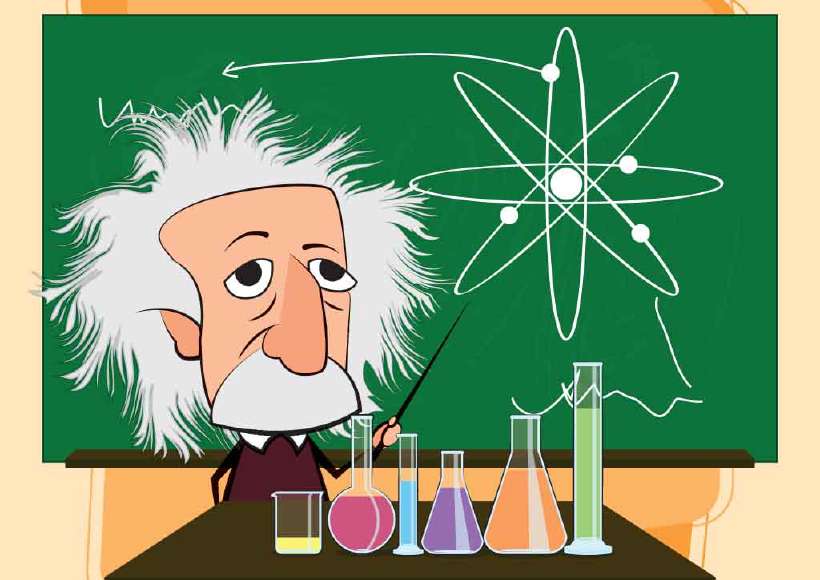German-American physicist Albert Einstein contributed more than any other scientist to the 20th-century vision of physical reality. In the wake of World War I, Einstein’s theories, especially his theory of relativity, seemed to many people to point to a pure quality of human thought, one far removed from the war and its aftermath. Seldom has a scientist received such public attention for having cultivated the fruit of pure learning.
Born in Ulm in Germany on March 14, 1879, Einstein’s parents were nonobservant Jews who moved from Ulm to Munich when Einstein was an infant. The family moved yet again to Milan in Italy in 1894, when the family business of manufacturing electrical apparatus failed.
At this time Einstein decided officially to relinquish his German citizenship. Within a year, still without having completed secondary school, Einstein failed an examination that would have allowed him to pursue a course of study leading to a diploma as an electrical engineer at the Swiss Federal Institute of Technology (the Zurich Polytechnic). He spent the next year in nearby Aarau at the cantonal secondary school, where he enjoyed excellent teachers and first-rate facilities in physics. Einstein returned in 1896 to the Zurich Polytechnic, where he graduated (1900) as a secondary school teacher of mathematics and physics.

After a lean two years he obtained a post at the Swiss patent office in Bern. The patent-office work required Einstein’s careful attention, but while employed (1902-09) there, he completed an astonishing range of publications in theoretical physics. For the most part these texts were written in his spare time and without the benefit of close contact with either scientific literature or theoretician colleagues. Einstein submitted one of his scientific papers to the University of Zurich to obtain a Ph.D. degree in 1905. In 1908 he sent a second paper to the University of Bern and became a lecturer there. The next year Einstein received a regular appointment as associate professor of physics at the University of Zurich.
By 1909, Einstein was recognized throughout German-speaking Europe as a leading scientific thinker. In quick succession he held professorships at the German University of Prague and at the Zurich Polytechnic. In 1914 he advanced to the most prestigious and best-paying post that a theoretical physicist could hold in central Europe: professor at the Kaiser-Wilhelm Gesellschaft in Berlin. Although Einstein held a cross-appointment at the University of Berlin, from this time on he never again taught regular university courses. Einstein remained on the staff at Berlin until 1933, from which time until his death (in 1955) he held an analogous research position at the Institute for Advanced Study in Princeton, N.J.
![Portrait of Albert Einstein [Illustration by Amarjeet Malik]](/media/albert-einstein_hu776550e879ce0ecf0951846f9c9a413f_46453_320x0_resize_q60_box.jpg)
Einstein’s special theory of relativity assumed that light travelled through space in the form of photons. He also asserted that the speed of light in a vacuum is invariant, and is independent of the speed of its source. His equations showed that mass increases with velocity, and that time is foreshortened by velocity.
Until the end of his life Einstein sought a unified field theory, whereby the phenomena of gravitation and electromagnetism could be derived from one set of equations. After 1920, however, while retaining relativity as a fundamental concept, theoretical physicists focused more attention on the theory of quantum mechanics – as elaborated by Max Planck, Niels Bohr, Werner Heisenberg, and others – and Einstein’s later thoughts went somewhat neglected for decades. This picture has changed in more recent years. Physicists are now striving to combine Einstein’s relativity theory with quantum theory in a “theory of everything,” by means of such highly advanced mathematical models as superstring theories.
611 words |
6 minutes
Readability:
Grade 11 (16-17 year old children)
Based on Flesch–Kincaid readability scores
Filed under: biographies
Tags: #biographies of scientists, #albert einstein, #physicist, #german, #zurich, #einstein, #physics, #berlin, #quantum mechanics, #theory of relativity
You may also be interested in these:
Why was the Berlin Wall Built?
Karl Marx
What is Esperanto?
Polite Police